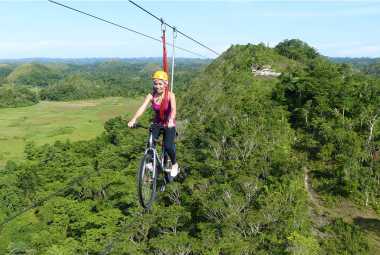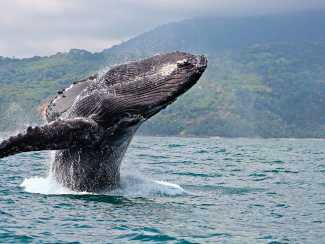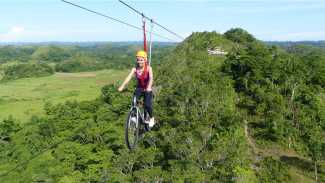Image by internationalcitizens.com
*Vacation Mode is a for-profit site. It contains paid banner advertisements that are generated and managed by a third-party network. This site also includes relevant affiliate links (both in the content and on the sidebar) all of which we do our best to clearly mark as such.
Explore the safety of Costa Rica for U.S. tourists with essential tips, facts, and FAQs.
Table of Contents
General Safety in Costa Rica
Costa Rica is generally considered a safe destination for international travelers, including those from the U.S. However, as with any travel destination, it's important to stay aware and take precautions. U.S. Department of State - Costa Rica Travel Advisory.
Costa Rica is renowned for its stunning natural beauty, rich biodiversity, and warm hospitality, making it a favored destination for U.S. tourists seeking adventure and relaxation. When it comes to general safety, Costa Rica is considered one of the safer countries in Latin America. The nation boasts a stable political climate and a lower crime rate compared to its neighbors. However, as in any travel destination, it's crucial for tourists to exercise common sense and stay informed. Petty crimes like pickpocketing and bag snatching can occur, especially in crowded tourist areas and public transport hubs. It's advisable to avoid flashy displays of wealth and to use hotel safes for valuables. Tourists should also be aware of natural hazards such as riptides at beaches and volcanic activity in certain regions. Road conditions can vary, and driving in remote areas requires caution, especially during the rainy season. The Costa Rican government is proactive in ensuring tourist safety, with visible police presence in popular tourist spots and strict enforcement of laws. For the latest travel advisories and safety tips, tourists are encouraged to check the U.S. Department of State's travel website and the Costa Rica Tourism Board's official channels. By taking these simple precautions and staying aware of their surroundings, U.S. tourists can enjoy a safe and memorable experience in the rich landscapes and vibrant culture of Costa Rica.
Travel Tips for U.S. Tourists
When traveling in Costa Rica, it's advisable to follow these tips: [List of travel tips]. For more information, visit Costa Rica Tourism Board.
-
Travel Documents and Insurance: Ensure your passport is valid for at least six months beyond your planned date of return. Consider purchasing travel insurance that covers medical emergencies, theft, and trip cancellations.
-
Health Precautions: Check with the Centers for Disease Control and Prevention (CDC) for any recommended vaccines before traveling. Pack a basic first aid kit and any personal medications.
-
Understand Local Laws: Familiarize yourself with Costa Rican laws and customs. For instance, drug offenses are taken very seriously, and there are strict regulations regarding environmental conservation.
-
Money Matters: The local currency is the Costa Rican Colón, but US dollars are widely accepted. Inform your bank of your travel plans to avoid any issues with your credit or debit cards.
-
Safety and Security: Stay in well-known tourist areas, especially at night. Use licensed taxis or reputable transportation services. Avoid carrying large amounts of cash or wearing expensive jewelry.
-
Communication: Learn some basic Spanish phrases, as English may not be widely spoken outside tourist areas. Consider purchasing a local SIM card for easier communication and navigation.
-
Respect Wildlife and Nature: Costa Rica is known for its biodiversity. Respect wildlife and natural habitats by not feeding animals, touching coral reefs, or littering.
-
Transportation: If you plan to rent a car, be aware that roads can be challenging, especially in rural areas. Always carry a physical map as GPS services may not be reliable everywhere.
-
Weather Preparedness: Costa Rica has a tropical climate. Pack lightweight, breathable clothing, rain gear, and sun protection. Be aware of weather forecasts, especially during the rainy season.
-
Cultural Sensitivity: Costa Ricans, or "Ticos," are known for their friendly and polite nature. Embrace local customs and traditions with respect and an open mind.
-
Emergency Contacts: Keep a list of emergency contacts, including the local U.S. Embassy or Consulate in Costa Rica, local emergency services, and your accommodation details.
-
Stay Informed: Keep up-to-date with local news and travel advisories during your stay. Apps and websites can provide real-time information about weather, road conditions, and other travel-related updates.
By following these tips, U.S. tourists can enhance their travel experience in Costa Rica, ensuring a trip that is not only enjoyable but also safe and hassle-free.
Common Safety Concerns
While Costa Rica is largely safe, tourists should be aware of common issues such as petty theft and natural hazards. Learn more at CDC Travel Health Information.
While Costa Rica is generally a safe destination for tourists, it's important to be aware of some common safety concerns. Petty crimes such as pickpocketing and bag snatching are the most frequent issues, particularly in crowded areas, public beaches, and busy markets. Tourists are advised to be vigilant with their belongings, avoid isolated areas, especially after dark, and use caution when withdrawing money from ATMs. Additionally, while the country's natural beauty is one of its biggest attractions, it's essential to respect the power of nature. This includes being cautious of strong ocean currents and riptides at beaches, which can be dangerous even for experienced swimmers. Also, when exploring Costa Rica's lush rainforests and national parks, it's advisable to stay on designated paths to avoid encounters with hazardous wildlife or getting lost. Road safety can also be a concern, as some roads may be poorly lit or in disrepair, and driving standards can differ from what U.S. tourists are accustomed to. By staying informed, taking necessary precautions, and respecting local laws and nature, tourists can significantly reduce their risk and enjoy a safe, memorable Costa Rican adventure
Useful Resources
For comprehensive travel information and advisories, refer to the U.S. Department of State Travel Website.
FAQs
-
Is Costa Rica safe for solo travelers?
- Costa Rica is generally safe for solo travelers. However, it's important to stay in well-lit, populated areas, especially at night, and always inform someone of your travel plans.
Do I need a visa to travel to Costa Rica?
- U.S. citizens do not need a visa for tourist visits of up to 90 days. A valid passport and a return ticket are required.
What is the best time of year to visit Costa Rica?
- The best time to visit depends on your preferences. The dry season, from December to April, is ideal for beachgoers and hikers, while the rainy season, from May to November, offers lush landscapes and fewer tourists.
Can I drink the tap water in Costa Rica?
- In most parts of Costa Rica, the tap water is safe to drink. However, in more remote areas, it's advisable to drink bottled or filtered water.
What should I pack for a trip to Costa Rica?
- Pack lightweight, breathable clothing, a good pair of walking shoes, rain gear, a hat, sunscreen, insect repellent, and a swimsuit. Don't forget your charger and an adapter if needed.
Is English widely spoken in Costa Rica?
- English is widely spoken in tourist areas and by many Costa Ricans, especially the younger generation. However, knowing some basic Spanish phrases can be helpful.
How should I get around in Costa Rica?
- There are several options: renting a car, using public buses, or booking shuttle services. Taxis are readily available in cities, but make sure they are official taxis.
What kind of electrical outlets are used in Costa Rica?
- Costa Rica uses the same type of outlets as the U.S. (Type A and B, 110V), so most U.S. appliances should work without an adapter.
Are there any vaccinations required for Costa Rica?
- No vaccinations are required, but the CDC and WHO recommend routine vaccines, as well as Hepatitis A and Typhoid, especially if you're visiting rural areas.
What should I do in case of an emergency in Costa Rica?
- In case of an emergency, dial 911 for assistance. It's also a good idea to have the contact information of your country's embassy or consulate in Costa Rica.
Can I use my credit card in Costa Rica?
- Credit cards are widely accepted in most hotels, restaurants, and stores, especially in tourist areas. It's still a good idea to carry some cash in local currency for small purchases.
What are the COVID-19 travel requirements for Costa Rica?
- Travel requirements can change, so it's best to check the latest guidelines from the Costa Rican government or the U.S. Embassy in Costa Rica before traveling.


















